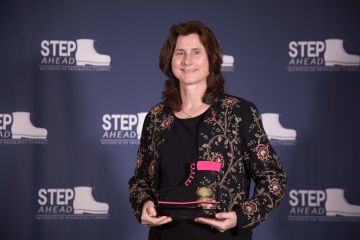A new study suggests children who do The Daily Mile are fitter, more alert, more self-motivated and more resilient
CHILDREN who run about a mile every day at school do better in the classroom.
A new study has shown that children who ran for 15 minutes a day over three months performed up to 25% better than expected in reading, writing and maths exams. The children were also fitter, more confident and less disruptive.
The results have been welcomed by INEOS, which has invested its time, energy and money in helping retired Scottish headteacher Elaine Wyllie to spread the word about her Daily Mile scheme to get children fit for life.
“This is excellent preliminary evidence that The Daily Mile has a positive and transformative impact on children’s physical fitness and wider health and wellbeing,” said Holly Eager, Assistant Communications Officer at INEOS’ London-based headquarters.
The report had been commissioned by the London Playing Fields Foundation for Public Health England and Sport England to evaluate the impact of The Daily Mile at Coppermill Primary School in East London. For 12 weeks, 76 children from the school were monitored as they ran around a 340-metre track on a playing fi eld for 12 minutes.
“It was just a happy coincidence that they effectively chose to evaluate the Daily Mile,” said Holly. “We didn’t know about it until it was near completion.”
The results of the experiment amazed teachers, though, with children performing signifi cantly above national and regional predictions in their maths, writing and reading SAT exams. Nationally, 66% of pupils were expected to achieve the national average in reading, but at Coppermill 92% met the grade.
“It’s amazing,” said headteacher Figen Bektasoglu. “The Daily Mile does not make children brighter but more focused, attentive and ready to work.”
Ursula Heath, Group Communications Offi cer at INEOS, said children from more than 2,500 primary schools in the UK, Europe and the US now took part in The Daily Mile, which involves them leaving the classroom in their uniforms for a 15-minute run, walk or jog.
That equates to 500,000 pupils running 1.5 million miles a week and, with INEOS’ support, the initiative is still growing.
KIDS CONQUER THE WORLD
CHILDREN from St Polycarp’s Primary in Farnham, Surrey, have now effectively run around the world twice. Together they have walked, jogged or run 58,522 miles since The Daily Mile was launched in their school. “Our reception children love running which bodes well for the future,” said a spokesman for the school.



















